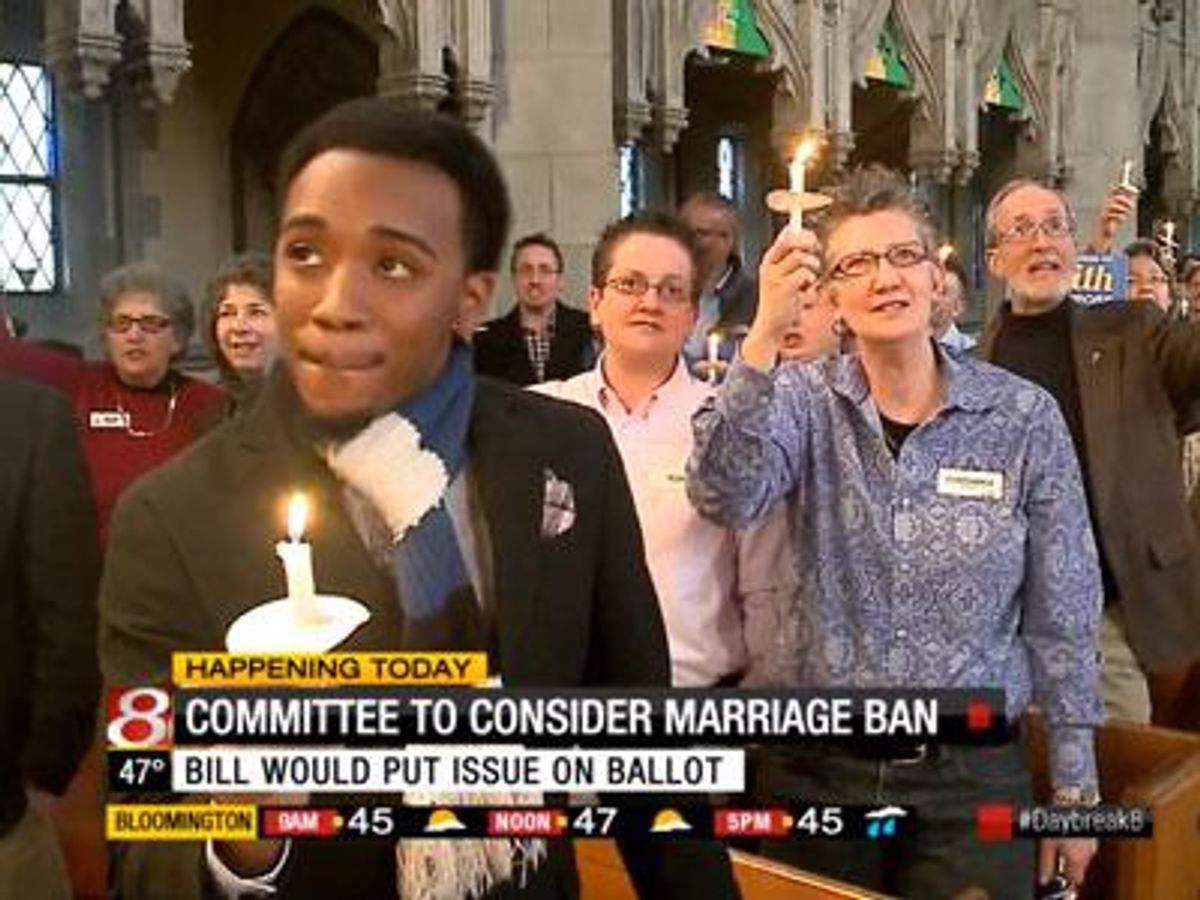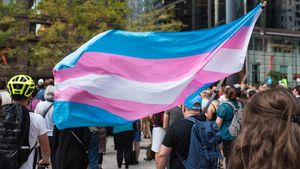Indiana's House Judiciary Committee today heard testimony about a bill that would write the state's statutory ban on same-sex marriage into the constitution, but delayed a scheduled vote on the bill.
After more than three hours of testimony, the committee chairman, Greg Steuerwald, said the panel ran out of time to fully consider the legislation, noting that several lawmakers on the 13-member committee told him they "wanted time to reflect on the testimony," according to the The Indianapolis Star. Steuerwald did not announce when the committee would take a vote on the bill.
Both opponents and supporters of the legislation, known as House Joint Resolution 3, were given equal time to testify -- though David Badash at the The New Civil Rights Movement notes that those wanting to enshrine discrimination into the state constitution were particularly energetic in their delivery and conviction.
Representatives from the antigay Alliance Defending Freedom testified, an unsurprising inclusion given the conservative legal group's active involvement opposing marriage equality in numerous other U.S. states. Several clergy members also testified in support of the bill, which would not only amend the state constitution to prohibit same-sex marriage, but would also forbid the validity or recognition of "a legal status identical or substantially similar to that of marriage for unmarried individuals."
The House committee also heard testimony on a piece of companion legislation aimed to clarify what the proposed amendment would and would not do.
House Bill 1153 contends that a constitutional amendment prohibiting any recognition for same-sex couples is not intended to force private employers, state subdivisions, or educational institutions to rescind existing domestic-partner benefits, nor would it invalidate existing nondiscrimination ordinances. HB1153 also claims the proposed marriage amendment is not intended to have any impact on existing legal arrangements for unmarried couples, including powers of attorney, wills, or trusts, nor does it seek to invalidate domestic violence protection laws that might currently extend to same-sex couples.
Existing Indiana law already prohibits same-sex marriage, but the proposed constitutional amendment would go further, asking Indianans to vote in 2014 to codify marriage discrimination in the state constitution. Constitutional provisions are more difficult to strike down in court.
Indiana is one of just four states with statutory bans on same-sex marriage that does not also include a constitutional prohibition on the unions, reports radio station WIBC. The proposed constitutional amendment passed the 2011 legislature with bipartisan majorities in both chambers -- 70-26 in the House and 40-10 in the Senate, according to WIBC -- but state law requires such a bill receive legislative assent in two consecutive sessions before it goes to the general public for a final vote.


















































































